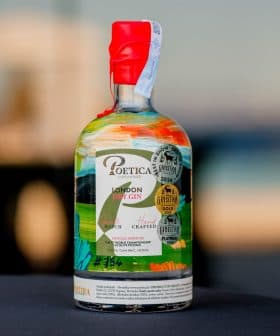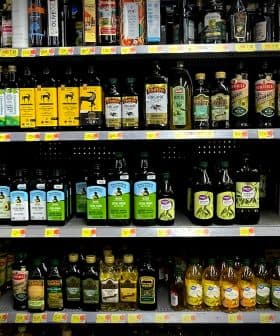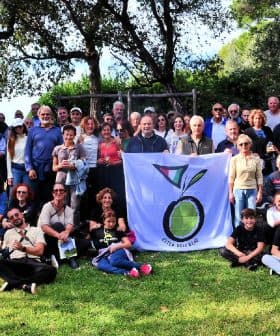Trade Group Highlights Sustainability at Manhattan Tasting Event
The North American Olive Oil Association hosted a tasting showcase in Grand Central Terminal in Manhattan, focusing on the sustainability of olive farming and oil production, with about 50 attendees and 18 producers from around the world participating. The event highlighted the environmental benefits of olive oil production, such as superior carbon sequestration compared to other edible oils, emphasizing the importance of choosing olive oil as the environmentally-friendly option among cooking oils.
The sustainability of olive farming and olive oil production took center stage Saturday at a tasting showcase in the landmark Grand Central Terminal in midtown Manhattan hosted by the North American Olive Oil Association (NAOOA).
About 50 olive oil buyers, brokers, chefs and media attended the event, along with 18 producers from around the world.
Our primary goal was to tell olive oil’s sustainability story to the invited buyers, brokers and chefs, and, through the invited media, to consumers, all of whose purchasing decisions might be swayed when they hear it.
“I’ve been attending the Fancy Food Show [a specialty food event] for many years, but I always thought it would be great if we had a show just for olive oils,” NAOOA executive director Joseph R. Profaci told Olive Oil Times. “Getting people together to taste olive oils is always a fun thing.”
Profaci said that NAOOA hosted a similar event before the onset of the Covid-19 pandemic, which was well received. At that event, the NAOOA and participants raised money for diabetes research.
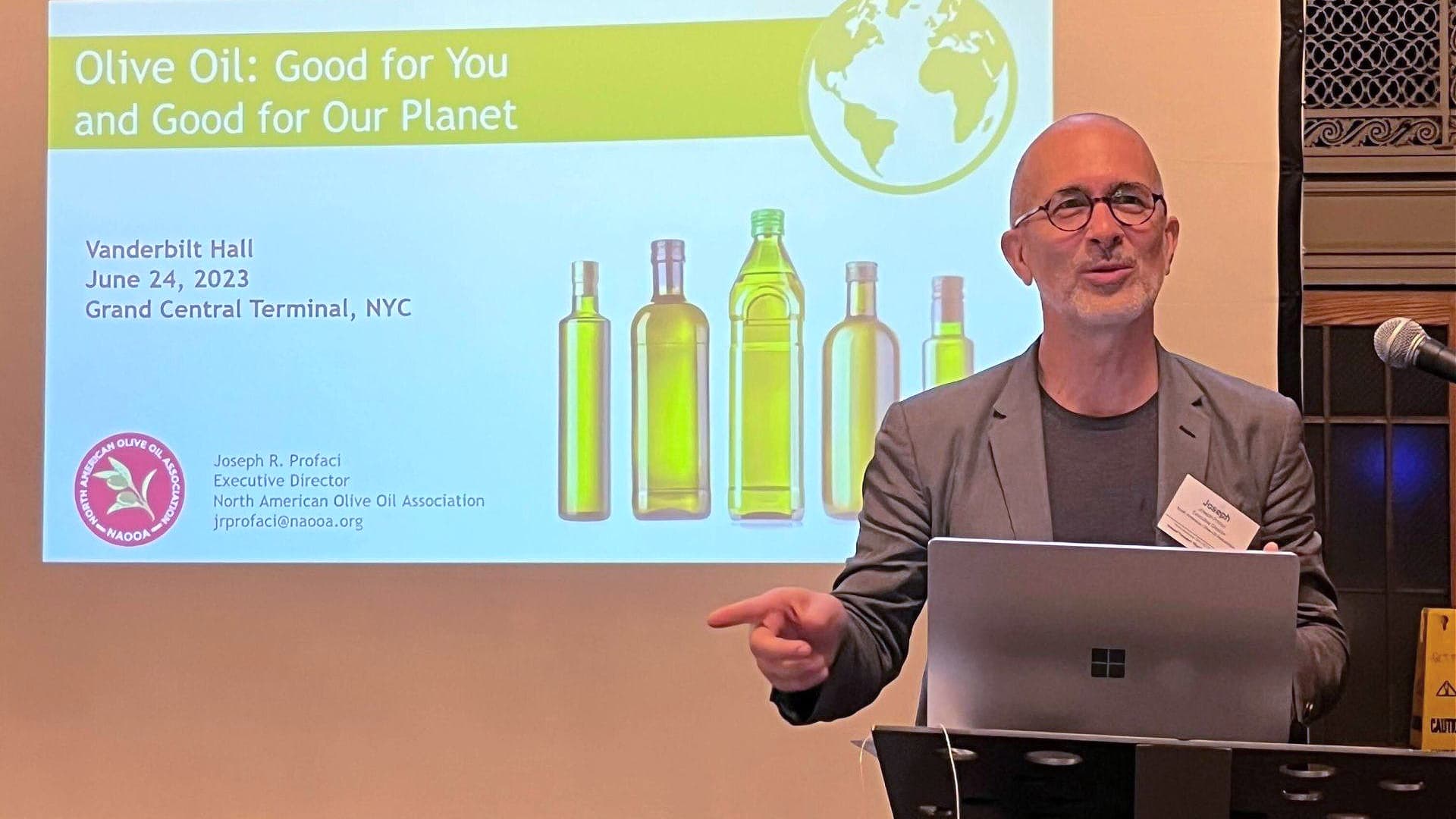
NAOOA executive director Joseph R. Profaci
“This year, instead of fundraising, we decided to give our captive audience a presentation on sustainability which is, of course, a hot topic in general, but not one that is often talked about when it comes to cooking oils,” he said.
See Also:Study Sheds Light on Environmental Impact of Global Food ProductionWhile the NAOOA frequently publishes educational material contrasting the organoleptic and health qualities of olive oils compared to other edible oils, Profaci took the opportunity to share research demonstrating why olive oil is the ‘greenest’ choice among edible oils.
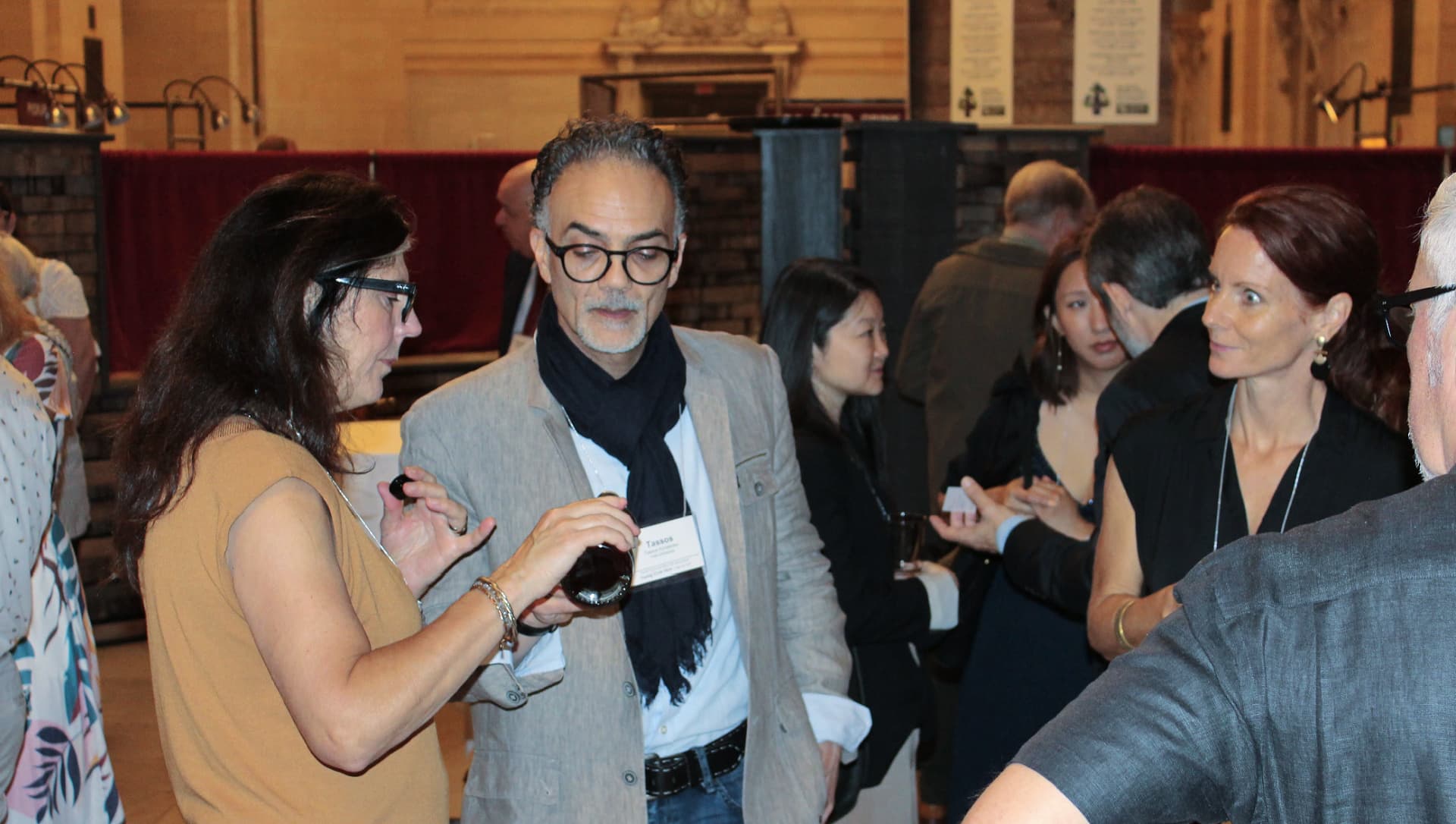
Sampling olive oils at Vanderbilt Hall, Grand Central Terminal, June 24, 2023
The headline fact surrounding olive oil sustainability usually cites the average amount of carbon dioxide sequestered per kilogram of oil produced.
Profaci cited research from Juan Vilar Strategic Consultants, which found that olive oil production sequesters 11 kilograms of carbon dioxide per kilogram of oil produced. By comparison, the carbon capture rates of corn oil (9.8), sunflower oil (9), avocado oil (7.5), canola oil (4.5) and soybean oil (2.77) are lower.
However, research conducted in 2021 by the University of Jaén, Spain, found that not all groves sequester carbon equally. Those researchers said traditional rainfed olive groves sequester an estimated 5.5 kilograms of carbon dioxide for each kilogram of olive oil produced. This figure falls to 4.3 in irrigated olive groves and 2.7 in super-high-density groves.

Representatives from Tierra Callada
With superior carbon storage capacity, olive groves sequester carbon in the soil for longer since they are a permanent crop, while many other edible oils are annual crops. When annual crops are burned or removed to plant the next year’s crop, sequestered carbon leaves the soil with them.
In his presentation, Profaci also pointed out that permanent crops help prevent erosion and allow for greater biodiversity on agricultural land than annual crops. Specifically, olive trees require significantly less water to grow than other edible oil crops and conserve soil minerals.
Besides farming, Profaci’s presentation highlighted that olive oil milling is more energy efficient than most oilseed production.
Most edible oils are produced chemically using powerful solvents, usually made from petroleum byproducts and require energy-intensive high heat to separate the oil from plant matter.
Olive oil production, on the other hand, is done mechanically. In the case of virgin or extra virgin olive oil, no heat is used during the process. Furthermore, many mills can be powered using renewable energy, such as turning waste products into biofuel or solar energy.
Profaci said the NAOOA decided to focus on sustainability at the event to emphasize to producers and sellers that olive oil is the environmentally-friendly option among edible oils.

Representatives from Manfredi Barbera
“When [the United States Food and Drug Administration] proposed its update on the regulations over the use of the word ‘healthy,’ they followed what I have been saying all along: to determine what’s ‘healthy’ you must first look to the food group as a point of reference,” he said.
“Well, the same is true if you are looking at what’s healthy for the planet,” Profaci added. “Just as different proteins may have different carbon footprints and overall environmental impact due to the way they are produced, for example, the same is true of cooking oils, and people need to be aware of the differences.”
While olive oil sustainability took center stage, Profaci pointed out it was a trade event, so another focus was business. “It provides a venue for our members to tell their unique stories and sell some product.”
“But since it was a trade showcase, our primary goal was to tell olive oil’s sustainability story to the invited buyers, brokers and chefs, and, through the invited media, to consumers, all of whose purchasing decisions might be swayed when they hear it,” he added.
With Saturday’s event in the rearview mirror, Profaci is gathering feedback and looking ahead to next year’s event.


